Kissinger Warns About Dangers Of Restoring Iran’s Nuclear Deal
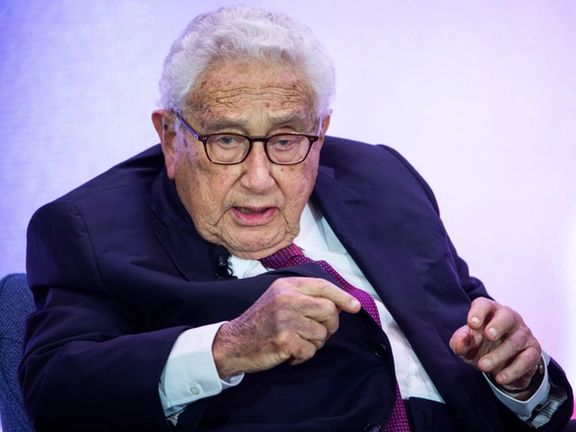
Veteran statesman Henry Kissinger says the trouble with the talks to revive Iran’s nuclear deal is that it is very dangerous to go back to a deal that was inadequate to begin with.

Veteran statesman Henry Kissinger says the trouble with the talks to revive Iran’s nuclear deal is that it is very dangerous to go back to a deal that was inadequate to begin with.
He noted that if such a deal is reached, the situation of the region might become “much more explosive” because “particularly Israel – Iran’s chief enemy – but also Egypt and Saudi Arabia – whom they see as principal competitors – were going to be driven into reactions.”
Saying that there is really “no alternative to the elimination of an Iranian nuclear force,” Kissinger emphasized that there is “no way you can have peace in the Middle East with nuclear weapons in Iran, because before that happens, there is a high danger of pre-emption by Israel, because Israel cannot wait for deterrents. It can afford only one blow on itself. That is the inherent problem of the crisis.”
“I was extremely doubtful about the original nuclear agreement. I thought Iran’s promises would be very difficult to verify, and that the talks really created a pattern in which the nuclear build-up might have been slowed down a little but made more inevitable,” he said.
Iran’s media is filled with contradictory comments on the outcome of indirect talks with Washington in Qatar this week over the fate of the Vienna negotiations, which have been stalled for months.
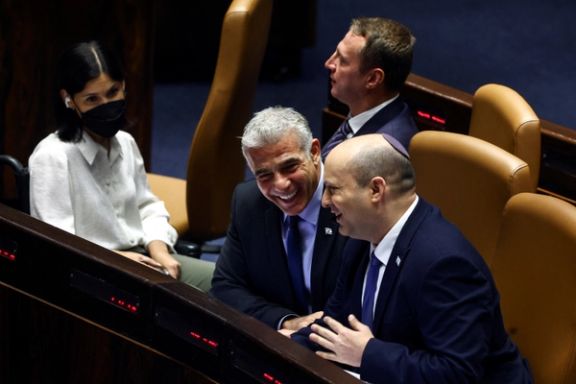
Israel’s Channel 12 television has reported that in an air attack on targets in western Syria Saturday an important shipment of Iranian weapons was destroyed.
Meanwhile, the new Israeli prime minister Yair Lapid in his first televised speech said, “the Iranian threat is the greatest threat facing Israel.”
The Syrian military said on Saturday that several missiles hit positions in the west of the country south of Tartus near the border with Lebanon, but claimed the targets were poultry farms. The UK-based Syrian Observatory for Human Rights said the animal husbandries are believed to be used by Iran-backed Lebanese group Hezbollah for military purposes.
Channel 12 in its report Saturday evening said that a shipment of weapons from Iran, possibly air defense systems that were unloaded a week earlier were the target of the Israeli attack. Earlier Israeli officials had said that Iran was working to beef-up Syria’s air defenses, obviously to protect its forces and Hezbollah, since Israel is not interested in attacking the Syrian military per se.
Israel has conducted hundreds of attacks against Iranian and Lebanese Hezbollah targets in Syria since early 2017, but it routinely remains silent about acknowledging any specific operation.
Last December, Israel twice attacked Syria’s Mediterranean port of Latakia destroying large amounts of material Syria said at the time. Photos published showed massive fires and damage in the port area.
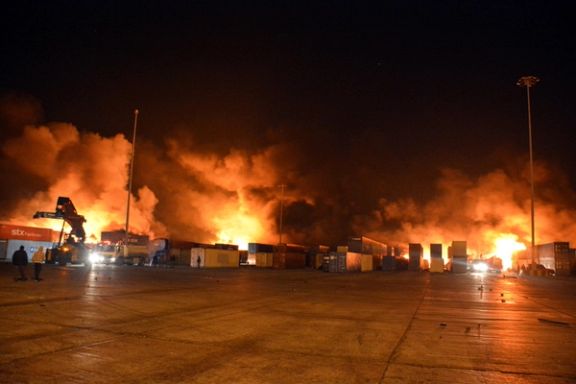
Russia, which had undisputed military sway in Syria, apparently had secret understandings with Israel not to interfere against Israel’s strikes against Iranian targets, usually weapons shipments and depots intended for Hezbollah and for building up a presence on the Syrian side of the Israel’s norther border.
The picture of the Russia-Israel-Iran triangle is less clear since the invasion of Ukraine and reports that Moscow has been reducing its military presence in Syria. However, Israeli attacks have continued.
Lapid in his Saturday address made it clear that Israel’s assessment of the Iranian threat will remain the same in the new government. “We believe that the Iranian threat is the gravest threat facing Israel. We’ll do whatever we must to prevent Iran from acquiring a nuclear capability, or entrenching itself on our borders,” he said.
He went on to renew Israel’s customary warning to enemies: “I stand before you at this moment and say to everyone seeking our demise, from Gaza to Tehran, from the shores of Lebanon to Syria: don’t test us. Israel knows how to use its strength against every threat, against every enemy.”
The previous government headed by Naftali Bennet, in which Lapid occupied the key post of foreign minister, advanced a new policy dubbed the “Octopus Doctrine’, stipulating that it will not just be content with hitting Iran’s “tentacles”, meaning proxies, and will aim at the head of the octopus.
This policy perhaps manifested itself in repeated attacks against sensitive targets and key military and intelligence officials inside Iran. The offensive has rattled Islamic Republic’s establishment, which began purging intelligence and counter-intelligence officials in June.
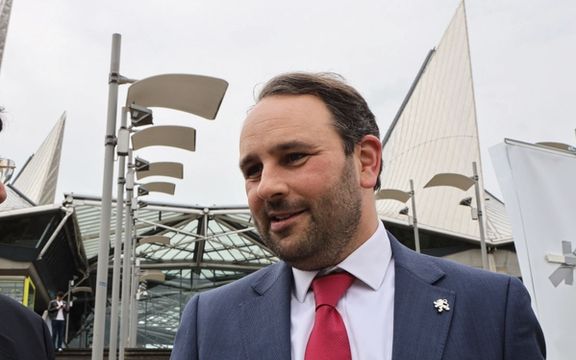
A draft law in Belgium, which could lead to the release of an Iranian diplomat in prison for planning a terror attack 4 years ago, has raised strong opposition.
The draft law, which has been sent to parliament and put on the agenda of the foreign affairs committee stipulates a prisoner exchange agreement with Iran, India, and the United Arab Emirates (UAE).
An informed source told Iran International that two Belgian citizens are currently in prison in Iran. One of the two is apparently an Iranian-Belgian professor of Louvain University. His case was mentioned a few years ago by the chancellor of Tehran University, Mahmoud Nili. Nili said the university had stopped its exchanges with Tehran University due to his arrest but did not name him. It is not clear who the other Belgian is.
Critics say the bill’s approval would pave the way for the repatriation of Asadollah Asadi, an Iranian diplomat serving a 20-year sentence in Belgium for “attempted murder and involvement in terrorism.”
Assadi, 50, a former attaché at the Iranian embassy in Austria, was convicted of plotting to bomb a gathering of the exiled opposition group Mujahedin-e Khalq Organization (MEK) near Paris on June 30, 2018.
Darya Safai, an expatriate Iranian dentist and member of the Belgian Parliament, in a video message Friday protested against the government’s decision to rush a prisoner exchange treaty with Iran.
Safai said she and some other lawmakers have demanded an answer from the minister of justice, Vincent Van Quickenborne, but have not been offered a convincing answer.
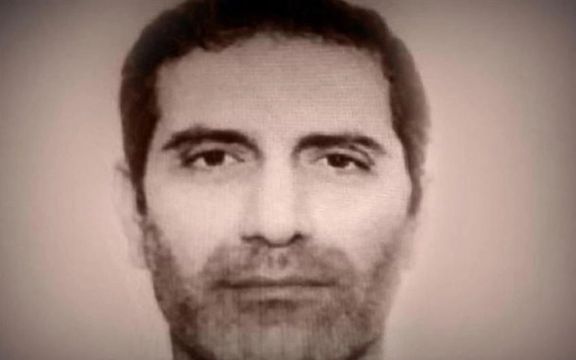
“We will register guarantees regarding the rule of law, the execution of sentences and human rights, because our country has a strong international reputation in this area and we must uphold that reputation,” Van Quickenborne has said regarding the proposed law.
Safai told Iran International that the bill does not exclude those in prison for terrorist activities and will therefore pave the way for the release of Iranians involved in terrorism in Belgium in the future. “My life and that of my husband, children and so many others are in danger and that is why I ask for your attention,” Safai said in her message.
Another Belgian lawmaker, Michael Freilich, has also questioned the government over its “urgent” prisoner exchange plans. “Why does this all have to be so fast?” he asked the Parliament. “I am strongly opposed to any deal to release convicted terrorists from jail.
Let's make it clear: We do not negotiate with terrorists!” he tweeted in May regarding Iran’s demand for Asadi’s freedom.
According to Brussels Times, if passed, the law would ensure that Iranians convicted in Belgium can serve their sentences in their home country, and vice versa.
“Asadi will not remain in prison even for one day [in Iran],” Safai said, adding that Iranian authorities will welcome him home with flower garlands when he gets back.
There is a possibility that the agreement would lead to Asadi’s exchange with Swedish-Iranian professor Ahmadreza Djalali(Jalali), Brussels Times sais on Saturday.
Djalali was arrested during a working visit to Iran six years ago. He was sentenced to death in October 2017 on charges of spying for Israel.
Amnesty International released a detailed research and analysis paper in May to prove that Iranian authorities were threatening to execute Djalali to compel Belgium and Sweden to hand over Asadi and Hamid Nouri who is in prison in Sweden for involvement in mass execution of prisoners in 1980s, and “to deter them and others from future prosecutions of Iranian officials”.
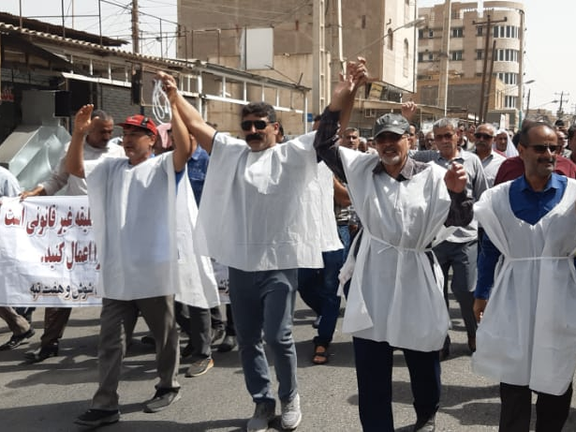
Iranian pensioners held another round of nationwide demonstrations on Saturday, calling on the government to increase their pensions by 38 percent.
According to videos published on social media, retirees took to the streets in several cities such as Kerman, Karaj, Zanjan, Arak, Shush, Shushtar, and Ahvaz to protest against the Raisi administration for pushing in parliament a much smaller increase of only 10 percent while the latest inflation rate figure stands at 55 percent.
They say the administration’s decision to increase pensions by 10 percent is "illegal" and "unfair".
Denouncing President Ebrahim Raisi and his government, the pensioners chanted slogans such as "Parliament, government; both lie to the nation."
Retirees are demanding pension increases in par with rising prices of essential foods, saying that the current payments are not in line with decrees by the Supreme Labor Council, which had stipulated a 38-percent increase in the minimum wage.
With food prices rising faster after four years of United States’ ‘maximum pressure’ sanctions, Iranian workers and retirees have been holding regular protests or strikes to demand higher salaries. Last month, Iran’s currency fell to a historic low of 333,000 rials to the US dollar in June.
During the past weeks, widespread protests by workers,shop owners, and teachers protesting against poverty, inflation, and low wages, have been met with heavy-handed crackdown and numerous arrests by the security forces.
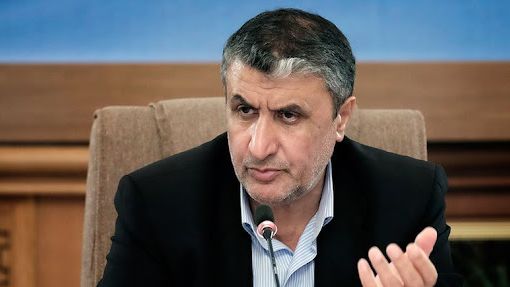
In a surprising move Iran’s nuclear chief has called on the government to consider people’s dire economic situation and try to reach a deal with Washington.
In what appears to be the first criticism of the government's foreign and economic policy from within President Ebrahim Raisi’s administration, the head of Iran’s Nuclear Organization, Mohammad Eslami has said, "The people can no longer tolerate the economic and financial pressures." He called on Iran's nuclear negotiating team "to use a strong political and legal argument" to facilitate the lifting of US sanctions and putting Iran back on track to progress and development.
Eslami, who is also a vice president, said during a speech on June 30 and published on Saturday: "The uncalculated measures taken by a part of the government to reform the cash subsidy system provided a pretext for nationwide dissatisfaction."
He was referring to the government decision in early May to eliminate food import subsidies that led to unusual price rises followed by protests in many parts of the country. However, he also blamed the "world's oppressive powers'" [the Islamic Republic officials' jargon to refer to the United States] opposition to Iran and its “destructive measures” that raises the risk of investment in Iran and creates economic and financial difficulties for the people.
Eslami said that the United States reduced the value of the Iranian currency by 30 to 40 percent in one blow, and Iranians are no longer able to tolerate more economic pressures.
The Iranian currency has dropped significantly since March when nuclear talks to revive the 2015 agreement known as the JCPOA stopped without a final result.
Despite his criticism of the state of the economy, Eslami said elsewhere in his speech: "Iran's economic situation is outstanding. Iran is one of the world's 20 superior economies." This was probably to balance his statements when he realized that he has gone too far in criticizing the government.
He added that the Iranian opposition abroad keeps telling the International Atomic Energy Agency (IAEA) that Iran is working on nuclear bombs. He added that inspections by the IAEA refuted these claims. However, he did not say that on June 8 the IAEA Board of Governors issued a resolution condemning Iran for not answering the agency's questions about traces of nuclear material in undeclared sites.
Eslami also stopped short of mentioning Iran's violations of JCPOA, by producing 60-percent enriched uranium and shortening the time it needs to reach a nuclear breakout point. However, he called on the negotiating team to use strong arguments to win Iran’s case.
This comes while the negotiating team is being criticized by Iranian politicians and analysts for not doing their best mainly because they, particularly the teams leader Ali Bagheri, have opposed the JCPOA since 2015, and have opposed any agreement with the United States since 2011.
Eslami called on officials to respond to the people's complaints about their difficult financial situation.
The most controversial part of Eslami's speech was his reference to "the need for intelligent command and management to prevent the enemy from making gains." This could be taken as a reference to Supreme Leader Ali Khamenei's occasional indecision at tough junctures as he does not wish to assume any responsibility for possible consequences, although he has the final say about everything in Iran including the nuclear program.
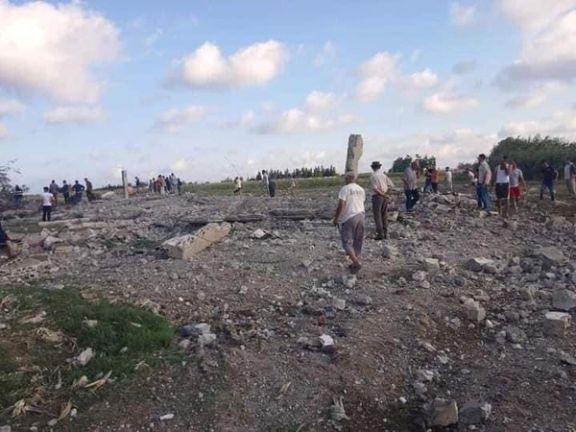
Two Syrian civilians were wounded in an alleged Israeli airstrike targeting sites reported to be Hezbollah's weapons depots near Syria’s port Syrian city of Tartus.
According to a Syrian military source quoted by SANA state media Saturday morning, several missiles hit positions in and around al-Hamidiyah area south of Tartus near the border with Lebanon, injuring a young man and a woman and causing material damage.
SANA said the missiles targeted “several poultry farms in the vicinity of Hamidiyah,” but the UK-based Syrian Observatory for Human Rights said the animal husbandries are believed to be used by Iran-backed Lebanese group Hezbollah for military purposes.
Later on Saturday, Iranian Foreign Minister Hossein Amir-Abdollahian arrived in Damascus and met with Syrian President Bashar al-Assad, in a visit reportedly aimed at facilitating peace and security between Syria and Turkey.
The strike occurred less than a month after an Israeli attack on Damascus airport targeting Tehran’s assets on the ground, a regular occurrence in recent years.
Israel has conducted hundreds of strikes mostly since 2017 against what it has described as Iranian targets in Syria, where Tehran-backed forces have deployed over the last decade to support Assad in Syria's war.
Tartus, along with the Khmeimim air base in the nearby province of Latakia, are the main Russian bases in the country, which are reportedly being taken over by Iran forces and Hezbollah as Russia has begun pulling out its troops from Syria to bolster forces in Ukraine.